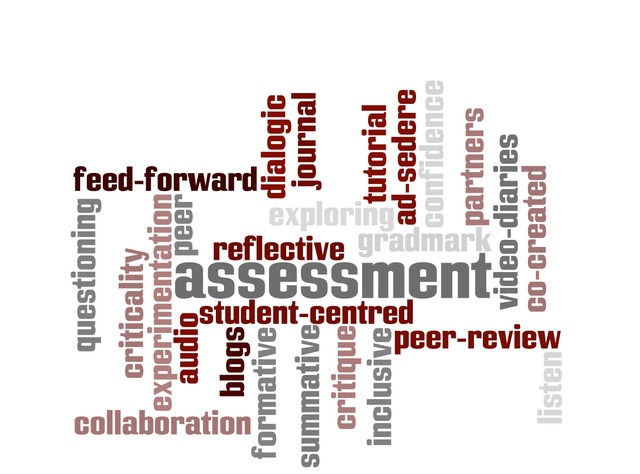Student and lecturer dissatisfaction with assessment is well reported: From the student perspective, most complaints focus on the technicalities of feedback, including content, organization of assessment activities, timing, and lack of clarity about requirements (Higgins, Hartley, & Skelton, 2001; Huxham, 2007), and from the lecturer perspective, the issues revolve around students not making use of or acting on feedback. The role of assessment in supporting diversity and variability (Eisner, 2002) remain central in terms of student learning experiences and it has become increasingly important to identify some of the conditions under which assessment supports student learning (Gibbs, 2006). In this way, it is possible to move from a culture of assessment of learning (where students passively accept knowledge) or Assessment for learning (students actively constructing knowledge and developing critical judgement) where students are seen as agents not objects of assessment?
Formative and ipsative (ongoing) feedback is central to the studio learning experience in art and design, potentially giving students rich dialogic experiences, in which to become active participants in their own learning. Based on a socio-constructive paradigm, feedback is often facilitative in that it involves provision of comments and suggestions to enable students to make their own revisions and, through dialogue, helps students to gain new understandings without dictating what those understandings will be (Archer, 2010). However, whilst the benefits to student learning, are recognised, the practicalities of giving and receiving feedback remain a challenging aspect of the teaching and learning process (Blair, 2011), still typified by a dependency on the tutor and a fixation on grades. Nicol and Macfarlane-Dick (2006) explored the potential of formative assessment to shift learners away from extrinsic motivation to towards intrinsic motivation and autonomous learning. In an art and design context, this ‘learning journey’ might be characterised by student presentations, portfolio reviews, peer assessment and critiques (crits). These rich learning experiences provide students with diverse, sometimes conflicting, formative assessment points in which they are expected to be autonomous learners. Students often describe troubling accounts of these experiences:
“Our tutor will say great, love it and then two weeks later in another formative review, another tutors says scrap it...I am really confused now and don’t know how to develop my work..." (UCA student, March 2013 ‘What’s behind the NSS’ research)
Working in groups, this interactive workshop will explore alternative methods of assessment through scenario-based discussion with the aim of illuminating the many challenges and tensions of assessment practice.
Interactive workshop which explored alternative methods of assessment through scenario-based discussion with the aim of illuminating the many challenges and tensions of assessment practice.
CORE AIMS
- Introduced HEA colleagues to assessment and feedback challenges at UCA
- Briefly explored the type of assessment and feedback students value in creative arts
- Introduced some alternative approaches to assessment for supporting student learning, including use of online learning.
OBJECTIVES
- Discussed the conditions under which assessment supports student learning
- Explored how far we can go in introducing different models of assessment for assessing creative work

